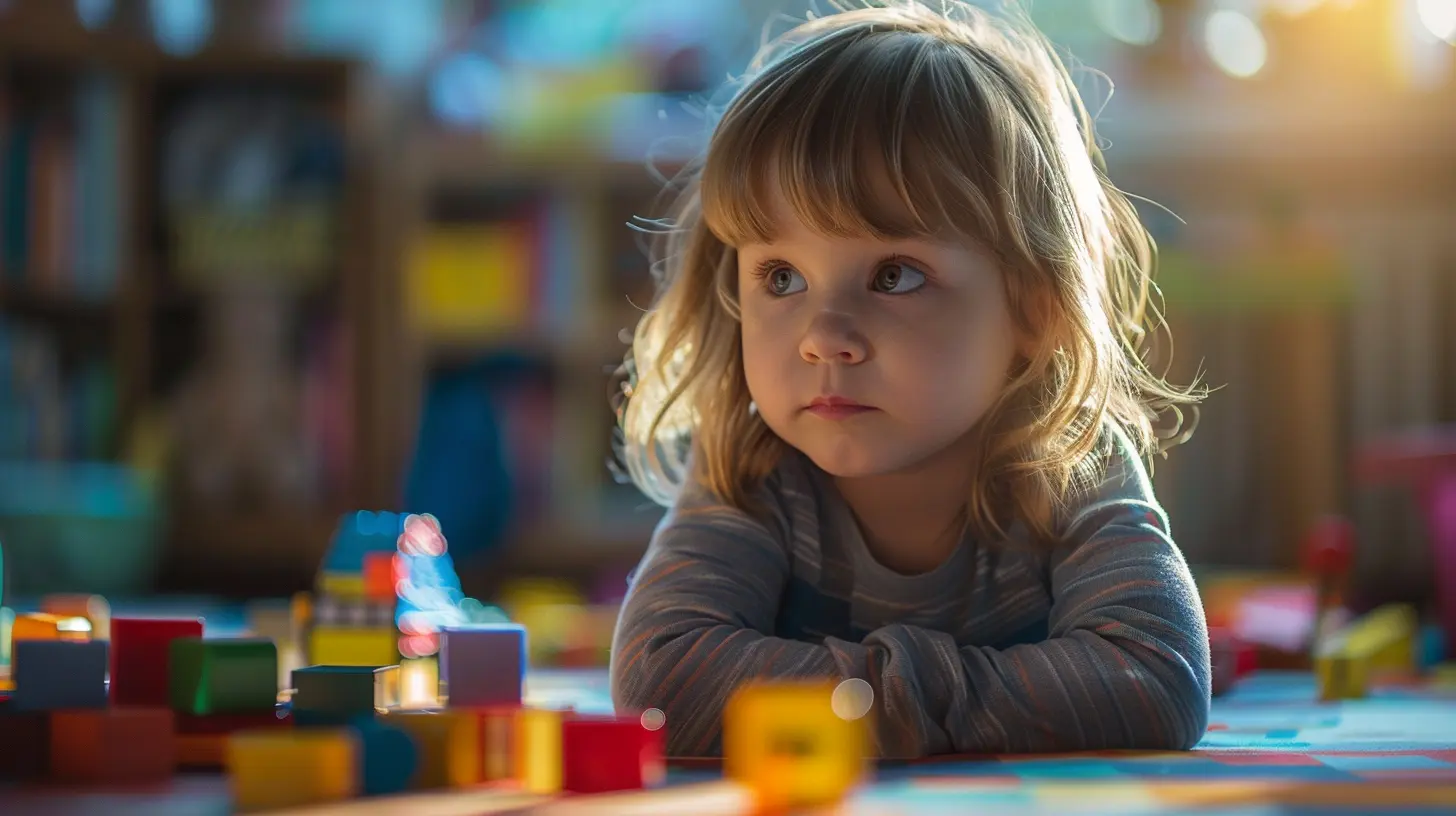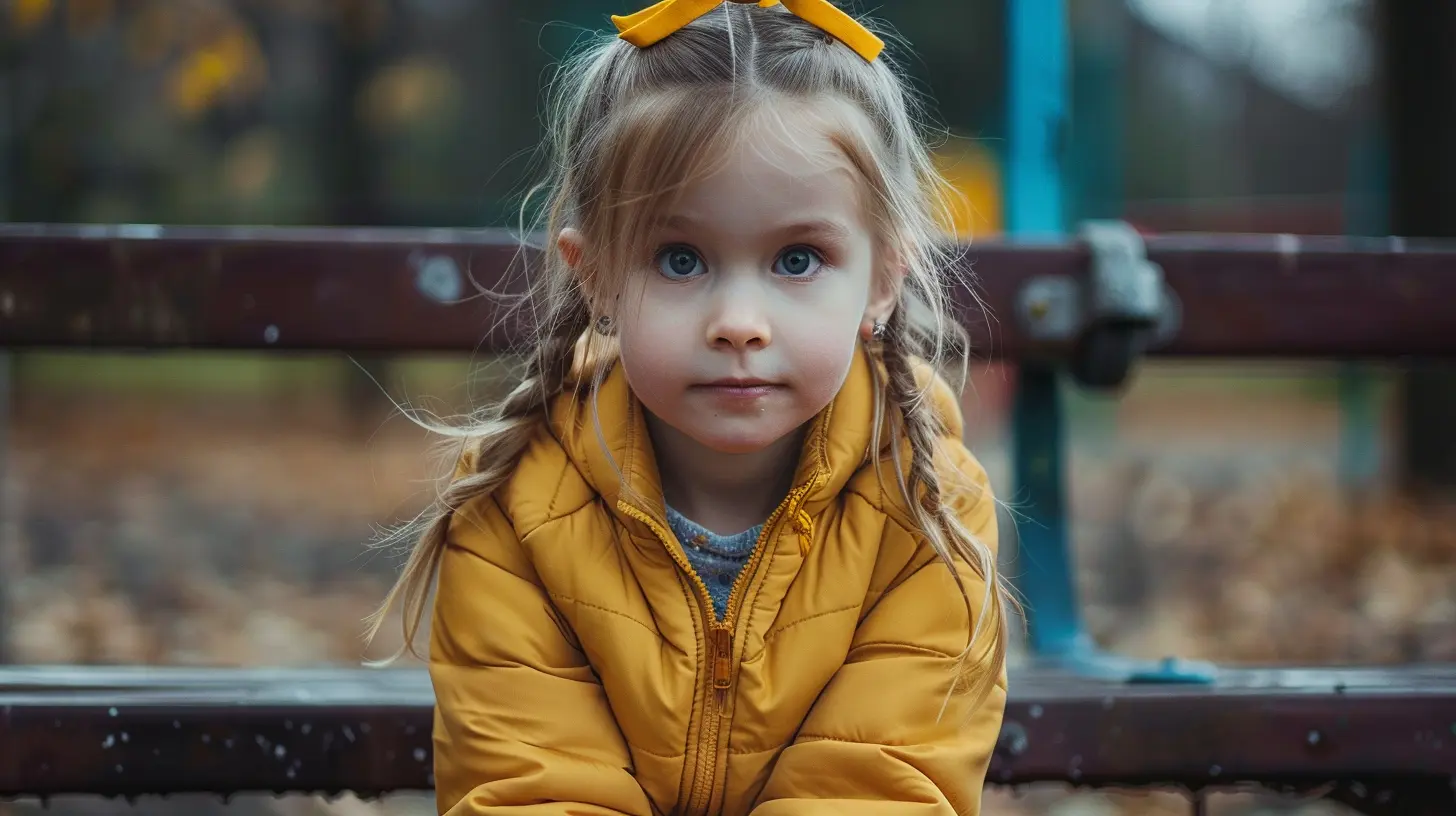The Role of Play in Child Psychoanalysis: Insights from Melanie Klein
4 April 2025
When we think of play, we often picture children having fun, using their imagination, or simply passing the time. But did you know that play is much more than just child's play? According to Melanie Klein, one of the pioneers in child psychoanalysis, play is a powerful window into a child's unconscious mind. It helps children express emotions, work through conflicts, and even heal psychological wounds.
In this post, we'll dive into the fascinating insights from Melanie Klein's work and explore why play is such a vital part of child psychoanalysis.

Who Was Melanie Klein?
Before we get into the details, let's talk a little about Melanie Klein. She was an Austrian-British psychoanalyst who made groundbreaking contributions to child psychology. Unlike Sigmund Freud, who focused heavily on adult patients, Klein believed that children could be analyzed in their early years through play.She developed innovative techniques that allowed therapists to understand children's unconscious thoughts, anxieties, and desires—without relying on verbal communication. Her work laid the foundation for modern child psychoanalysis.

Why Is Play So Important in Child Psychoanalysis?
Think about how children communicate. They don’t always have the words to describe how they feel, right? This is where play becomes their language.1. Play as a Means of Expression
For children, playing with dolls, drawing pictures, or building with blocks isn't just fun—it’s a way to express their emotions. When a child plays, they project their inner thoughts and feelings onto toys and imaginary scenarios. A simple game of make-believe can reveal hidden fears, anxieties, or even unresolved conflicts.2. Play as a Safe Space
Ever noticed how children reenact real-life situations in their play? This isn't just random—it’s their way of making sense of the world. Through play, kids can act out their worries in a safe and controlled environment.Let’s say a child is struggling with feelings of abandonment. They might use dolls to play out a scene where a parent leaves but later returns. This allows them to process their emotions without feeling overwhelmed.
3. Play as a Healing Process
Just like adults benefit from talking about their problems, children work through psychological issues by playing. Melanie Klein believed that play helps children confront fears, resolve inner conflicts, and gain control over their emotions.For example, if a child has experienced trauma, they may repetitively play out the scenario in different ways until they regain a sense of security. This repetitive play can be a form of self-therapy, helping them process difficult experiences.

Melanie Klein’s Play Technique
Now, you might be wondering—how exactly did Melanie Klein use play in therapy?Klein developed what we now call play therapy, a technique where therapists observe a child's play to understand their unconscious thoughts. Instead of asking direct questions (which might not work with young kids), therapists provide toys and watch how the child interacts with them.
Here’s how it works:
- Selection of Toys – Klein used specific toys like dolls, animals, and miniature objects, allowing children to project their emotions onto them.
- Observation – The therapist watches how the child plays, noting recurring themes, conflicts, or anxieties.
- Interpretation – By analyzing the child’s play, therapists can uncover deeper emotional struggles and provide guidance to help the child heal.
This method allowed Klein to tap into children’s unconscious minds without forcing them to verbalize complex emotions.

Key Insights from Melanie Klein’s Work
So, what did Klein’s research reveal about play and child development? Here are some key insights from her work:1. Children Experience Anxiety Earlier Than We Think
Klein discovered that even very young children experience deep-seated anxieties. Through play therapy, she noticed that children expressed fears related to abandonment, punishment, or internalized guilt—often long before they could verbalize these emotions.2. Fantasy Plays a Major Role in Development
She emphasized the role of phantasy (a term used in psychoanalysis) in a child's psychological world. Even before children have real-life experiences, their minds create internal scenarios that shape their emotions and behaviors. Play allows these hidden fantasies to surface.3. Relationships Are Reflected in Play
Klein observed that children’s relationships with their parents, siblings, or caregivers often played out in their play therapy sessions. If a child felt resentment toward a sibling, for example, it might come out through aggressive themes in their play.4. Play Helps Resolve Internal Conflicts
Through play, children naturally engage in problem-solving. If a child is feeling torn between love and jealousy, this conflict often appears in their play. By acting out different scenarios, they learn how to manage these emotions better.The Lasting Impact of Klein’s Work
Melanie Klein's theories have had a lasting impact on the field of psychoanalysis. Today, play therapy is widely used by psychologists, counselors, and therapists to help children deal with emotional and psychological challenges.Her work also influenced object relations theory, which focuses on how early childhood relationships shape a person’s emotional life. Many modern therapists still rely on her insights to understand how children form attachments, express emotions, and cope with trauma.
How Can Parents Use Play at Home?
Even if you're not a trained therapist, you can still use play as a way to connect with your child and support their emotional well-being.1. Encourage Free Play
Give your child plenty of opportunities for unstructured play. Let them choose their toys and create their own stories—it’s their way of expressing themselves.2. Observe Without Interrupting
Watch how your child plays instead of jumping in too quickly. This can give you valuable insights into their emotions and thoughts. If they seem to repeat certain themes, it might be worth exploring what’s on their mind.3. Use Play to Talk About Feelings
If your child is struggling with a big emotion—like anger, sadness, or fear—you can use dolls, drawings, or storytelling to help them express how they feel. Sometimes, it’s easier for kids to talk about a "character" in a story rather than directly discussing their own emotions.4. Be a Playful Parent
Engaging in play with your child strengthens your bond and creates a sense of security. Whether it’s role-playing, building with blocks, or drawing together, these moments provide comfort and reassurance.Final Thoughts
Melanie Klein revolutionized the way we understand child psychology by showing us the power of play. Through play, children reveal their deepest emotions, work through conflicts, and build emotional resilience.For parents, educators, and therapists, Klein’s insights remind us that every game, every story, and every imaginative moment holds a deeper meaning. So next time your child picks up a toy, remember—they're not just playing; they’re communicating in their own incredible way.
all images in this post were generated using AI tools
Category:
PsychoanalysisAuthor:

Nina Reilly
Discussion
rate this article
4 comments
Paula McCloud
This article beautifully highlights the profound impact of play in child psychoanalysis, as seen through Melanie Klein's insights. It’s a heartfelt reminder of how creativity and imagination shape emotional development, offering valuable perspectives for both parents and practitioners.
May 8, 2025 at 4:37 PM

Nina Reilly
Thank you for your thoughtful reflection! I'm glad the article resonated with you and highlighted the importance of play in emotional development.
Scarlett O'Neal
Thank you for shedding light on Melanie Klein's insights into play in child psychoanalysis. Understanding how play facilitates emotional expression and healing in children is essential. It’s heartening to see such a nuanced exploration of how we can support their psychological development through this vital medium.
April 15, 2025 at 4:53 AM

Nina Reilly
Thank you for your insightful comment! I'm glad you found the exploration of Melanie Klein's work on play in child psychoanalysis meaningful. It truly highlights the importance of play in supporting children's emotional well-being.
Tiffany Hahn
Insightful exploration of play's significance in child psychoanalysis.
April 10, 2025 at 2:46 PM

Nina Reilly
Thank you! I'm glad you found the exploration of play's significance insightful. It truly is a vital aspect of understanding child psychoanalysis.
Tiffany Fisher
Who knew that playtime could be a therapy session? If only my adult problems could be solved with a game of hide and seek and a good dose of finger painting! Let's all channel our inner kids—psychologists included!
April 8, 2025 at 2:49 PM

Nina Reilly
Absolutely! Play can be a powerful therapeutic tool, enabling both children and adults to explore emotions and foster healing—let's embrace our inner child!



